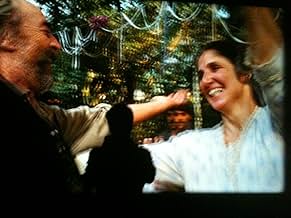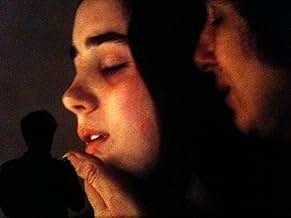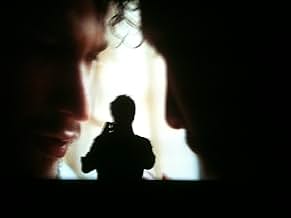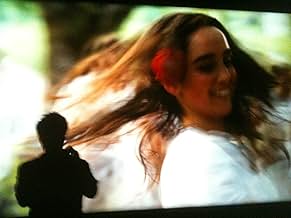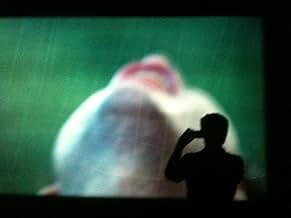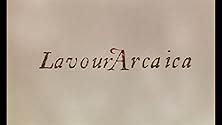IMDb RATING
7.5/10
2.2K
YOUR RATING
A young son who ran from his dominant family descends into decadence, then returns to the nest. Tyrannical fathers, incest, fierce family conflicts, and an intense visual style to match.A young son who ran from his dominant family descends into decadence, then returns to the nest. Tyrannical fathers, incest, fierce family conflicts, and an intense visual style to match.A young son who ran from his dominant family descends into decadence, then returns to the nest. Tyrannical fathers, incest, fierce family conflicts, and an intense visual style to match.
- Director
- Writers
- Stars
- Awards
- 52 wins & 28 nominations total
- Director
- Writers
- All cast & crew
- Production, box office & more at IMDbPro
Featured reviews
"Lavoura Arcaica" (aka "To The Left of the Father") is one of the most intense films you'll ever see - love it or hate it, it'll be a real experience for you. Devastating could be the best word to describe this masterpiece, based upon Raduan Nassar's brief, but strong novel of the same name. I've wanted to see this film since when it came out, back in 2001 - I read the novel the following year, when I was 14, and was thoroughly fascinated; the film would only be released on DVD in late 2005, and only now I could find a copy and finally watch it. It was worth the wait.
Luiz Fernando Carvalho, who had directed lots of soap operas before making his stunning feature directorial debut, didn't have a screenplay - everything was improvised on the novel, in a process Carvalho called a "reaction", rather than an adaptation, to the exquisite book. The tragic story of André (Selton Mello, perhaps the most versatile Brazilian actor of his generation) who leaves his home because of his tormented passion for his sister Ana (Simone Spoladore), is told with astounding visual taste by Luiz Fernando and cinematographer Walter Carvalho ("Central Station"), a remarkable original score by Marco Antônio Guimarães, and a flawless cast (including sacred monster Raul Cortez and Juliana Carneiro da Cunha as the parents). This is definitely not a film for all tastes, though; 170 minutes long, slow and spoken in Baroque Portuguese (I'm not sure English subtitles can make full justice to Nassar's poetic narrative; but then again, if you don't avoid Wong Kar-Wai's films just because you don't speak Chinese - I certainly don't - you'll be smart enough not to ignore this film). I'd compare "Lavoura Arcaica" to Terrence Malick and Pier Paolo Pasolini, but Luiz Fernando Carvalho managed to make a unique film with his own style. Well deserved winner of over 30 international awards, this is a film that must be discovered. 10/10 in my books.
Luiz Fernando Carvalho, who had directed lots of soap operas before making his stunning feature directorial debut, didn't have a screenplay - everything was improvised on the novel, in a process Carvalho called a "reaction", rather than an adaptation, to the exquisite book. The tragic story of André (Selton Mello, perhaps the most versatile Brazilian actor of his generation) who leaves his home because of his tormented passion for his sister Ana (Simone Spoladore), is told with astounding visual taste by Luiz Fernando and cinematographer Walter Carvalho ("Central Station"), a remarkable original score by Marco Antônio Guimarães, and a flawless cast (including sacred monster Raul Cortez and Juliana Carneiro da Cunha as the parents). This is definitely not a film for all tastes, though; 170 minutes long, slow and spoken in Baroque Portuguese (I'm not sure English subtitles can make full justice to Nassar's poetic narrative; but then again, if you don't avoid Wong Kar-Wai's films just because you don't speak Chinese - I certainly don't - you'll be smart enough not to ignore this film). I'd compare "Lavoura Arcaica" to Terrence Malick and Pier Paolo Pasolini, but Luiz Fernando Carvalho managed to make a unique film with his own style. Well deserved winner of over 30 international awards, this is a film that must be discovered. 10/10 in my books.
10groggo
'Stunning' is not an exaggerated word to describe this film. The images are haunting, and I saw it on the small screen at home. I can only imagine what it must have looked like in a theatre.
Director Luiz Fernando Carvalho is masterful in meticulously capturing the poetic word rhythms of novelist Raduan Nassar, who wrote this metaphysical, philosophical work. The largely verbatim prose-poetry (direct from Nasar's book), spoken improvisationally by the actors, is psychologically multi-layered. It is all brilliantly complemented by Walter Cavalho's multi-award-winning cinematography. Cavalho's disturbing and often sumptuous images linger long after the screen has turned dark. One is reminded of Sven Nykvist's haunting style of 'still-life-photography' in films, particularly those made with Ingmar Bergman.
Lavoura Carcaica is almost three hours long, and (isn't this always the way with great films?) it requires an almost immediate re-viewing. One just cannot absorb the language and imagery in one sitting.
The ensemble acting is first-rate. Sultan Mello is the tortured son in temporary self-imposed exile from his family, who yearns (shamefully) for the love and sensual heat of his sister Ana's body; Simone Spoladore is the innocent, sweet-faced Ana, who expresses her desire for love by dancing (the images are more erotic than 99% of the soft-core sex you see in mainstream movies these days); Juliana Carneiro da Cunha is the loving, long-suffering mother who is an exemplar of maternity, a woman who sacrifices everything to her children, and particularly her 'pet,' Andre (Mello); and Raul Cortez is simply astonishing to watch as the austere, evangelistic, hypocritical father who rages about the primacy of familial love but doesn't really understand its true meaning when it comes to his own children.
This is a film that well deserved its many nominations and awards. It is deeply challenging and demanding, and it almost certainly would never have been made in Hollywood.
Director Luiz Fernando Carvalho is masterful in meticulously capturing the poetic word rhythms of novelist Raduan Nassar, who wrote this metaphysical, philosophical work. The largely verbatim prose-poetry (direct from Nasar's book), spoken improvisationally by the actors, is psychologically multi-layered. It is all brilliantly complemented by Walter Cavalho's multi-award-winning cinematography. Cavalho's disturbing and often sumptuous images linger long after the screen has turned dark. One is reminded of Sven Nykvist's haunting style of 'still-life-photography' in films, particularly those made with Ingmar Bergman.
Lavoura Carcaica is almost three hours long, and (isn't this always the way with great films?) it requires an almost immediate re-viewing. One just cannot absorb the language and imagery in one sitting.
The ensemble acting is first-rate. Sultan Mello is the tortured son in temporary self-imposed exile from his family, who yearns (shamefully) for the love and sensual heat of his sister Ana's body; Simone Spoladore is the innocent, sweet-faced Ana, who expresses her desire for love by dancing (the images are more erotic than 99% of the soft-core sex you see in mainstream movies these days); Juliana Carneiro da Cunha is the loving, long-suffering mother who is an exemplar of maternity, a woman who sacrifices everything to her children, and particularly her 'pet,' Andre (Mello); and Raul Cortez is simply astonishing to watch as the austere, evangelistic, hypocritical father who rages about the primacy of familial love but doesn't really understand its true meaning when it comes to his own children.
This is a film that well deserved its many nominations and awards. It is deeply challenging and demanding, and it almost certainly would never have been made in Hollywood.
Well, I've actually seen this one in its entirety only once. First time around I gave up after 2 hours. Then I thought I might as well try again, as there could be some other great scenes in the last 40 minutes that I'd like to see on the big screen. It was worth it. It starts very well, and I like the ending, and there's lots of great stuff in between. But I have to say that 2 hours and 40 minutes was too long for this one. And a bunch of great scenes do not make a great movie just because they're put together, at least not in this case, I don't think so. Anyway, if you're in the mood for slow cinema, try this one.
10flasuss
This movie gained a cult-status because it won more than 30 international awards, received more praise from the Brazilian critics than any other feature of that year, but was never released on DVD or VHS until last week. But the waiting wasn't worthless: the movie is a masterpiece. Few films are so honest and love their characters so much as this one, and has so much faith in it's material. Carvalho's directing is clearly very elaborate, and makes every frame seems poetic... The baroque cinematography and the score reflects perfectly the mood of the characters, the sound mixing is nearly perfect, and the cast is, without exception, magnificent. Certainly one of the most overlooked films ever, but this time, the public cannot be blamed.
Saw this at HIFF 2002, Helsinki, Finland. 2 hours and 40 minutes seemed a bit much to me too, as to this is no film to enchant and suck you into the story. Extremely beautiful, but literal, heavy, and in the end: boring. Reminds me of the finnish theater tradition... I haven't read the book. Perhaps I should, as to the story in itself seems strong and interesting enough. Only the writer of the screenplay doesn't seem to have thought about the audiences not familiar with the novel. Perhaps it's also a culture thing. Still, I can't say I regret watching this film.
Did you know
- TriviaIs Luiz Fernando Carvalho's feature film debut.
- How long is To the Left of the Father?Powered by Alexa
Details
- Release date
- Country of origin
- Official site
- Language
- Also known as
- Babamın Sol Tarafı
- Filming locations
- Minas Gerais, Brazil(Exterior)
- Production companies
- See more company credits at IMDbPro
Box office
- Gross worldwide
- $518,908
Contribute to this page
Suggest an edit or add missing content




